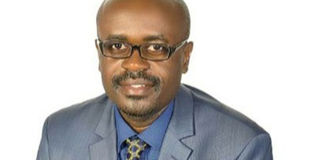Why I worry about the social media manners of our youths

Raymond Mugisha
What you need to know:
- In some way, youths that display the vilest conduct on social media attain a level of celebrity among peers, thus making it even appear more acceptable and vogue for those younger than themselves
In old African tradition, elders held a special place in all aspects of social existence and the young accorded them respect, looked up to them. Elders offered guidance and counsel to the young and their experience mattered in forming societal path in virtually all spheres of life. This applied to defining family values, relations with neighboring communities and other important facets of life. Also, in this traditional African social system it was implied that young people were groomed through observing and following the conduct of elders to take over from them with the passage of time. Although with its own faults, this system exhibited some sound outputs towards maintaining solid social order.
In our present time, intellectual systems rule, with messages that are alien to African tradition – such as, that everyone is equal. Under such systems, a son is equal to the father and grandfather and a 20-year-old is supposed to call the same shots as a 70-year-old in society, in many important aspects of our existence. It takes a certain level of rare wisdom these days, for the 20-year-old to tell the difference between self and the 70-year-old. Today, everyone is entitled to their opinion and is free to voice it, regardless of the audience, scenario and consequence. Everyone can talk back to everyone in this vain of equal rights to having and voicing opinions. In the current social arena, seniority holds little value towards the weight of one’s opinion. In fact, even outright abuses and insults directed towards elders and leaders are enveloped inside this right to holding an opinion and thus celebrated and promoted.
There is perhaps no better example to illustrate this than our social media spaces. Without claiming statistical information, since I have none, our social media indicates a total disregard of decorum, civility or respect towards anyone. On social media, elders and anyone else meet with abuses and all kind of insults and demeaning responses and attacks from an arsenal of mainly youthful participants. There seems to be a portion of the youthful generation that upholds an unwritten code to insult anyone who they do not hold in high regard or whom they disagree with, regardless of the person’s status or contribution to society. I often get the impression that some of our senior members of society could be easily intimidated out of our social media spaces for fear of what they are bound to be confronted with when they choose to actively participate. As such, we have a mass of majorly youthful participants running the social mill of our society, with the freedom to do it without caution. Elders are edged out and there is no benefit of passing on social values or any guidance of any sort to the young.
In some way, youths that display the vilest conduct on social media attain a level of celebrity among peers, thus making it even appear more acceptable and vogue for those younger than themselves. Indeed, even some not so young individuals seem to derive a degree of satisfaction from depraved social media conduct and have made a name from it. They also energize the younger ones.
Normally, this vile conduct on social media finds excuse in blaming those to whom it is directed, for their mistakes and shortcomings, real and perceived. In actual fact though, what we have in place and growing is a portion of our youthful population that feels no sense of accountability for their utterances and social conduct. They owe nobody anything and their sense of entitlement, as indicated by how they package their views, knows no boundaries and no context.
The problem is that given that youth is not a permanent status and these individuals will soon find themselves exiting that stage of life and transiting into adulthood. They themselves will then find themselves with the responsibility to socially guide their own children and others coming after them. It can get worrisome thinking about what these individuals will play their role like, when they find themselves in the seniority seat, as they soon must.
It appears to me like a recipe for social fracturing of our society. One easily fears that this generation faces the possibility of turning out less impressive than those they abuse on social media, when their turn comes to guide others. The free-range social growth pattern that they have chosen today, which disregards etiquette, is highly unlikely to give results any more pleasant.
Raymond is a Chartered Risk Analyst and risk management consultant




